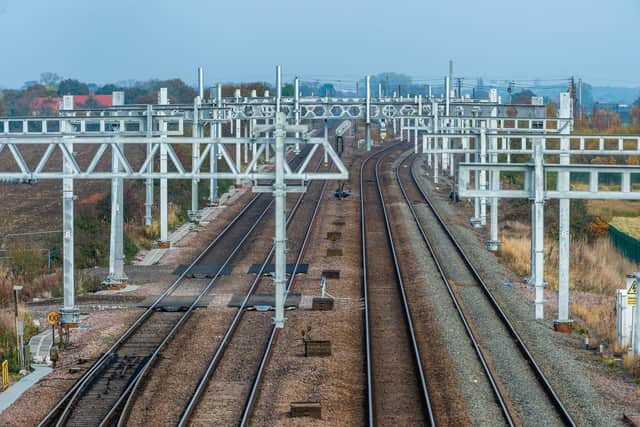Rail strikes a defence against Government’s attack on living standards - Yorkshire Post Letters
What an extraordinary editorial on the RMT strike! (“Political rail strikes begin”, The Yorkshire Post, June 21).
You smear it as a “blatantly political” attack on government, when it seems more reasonable to see it as a last-resort defence against the Government’s attack on people’s living standards, as rich Rishi Sunak tells desperate families they mustn’t ask for wages to match inflation.


Advertisement
Hide AdAdvertisement
Hide AdOf course the railways must change, as they’ve been doing since the 1950s when I, as a British Railways employee (non-union regrettably) was already involved in closing stations and lines. But the train operating companies (TOCs) mustn’t bring change as they propose doing, by penalising workers whose huge contribution to the economy is very precisely measured by the disruption caused when it is withdrawn.
Yet you let the TOCs completely off the hook, seeing their years of failure – “overcrowding, late-running services, timetabling chaos” – as trivial beside three days of strikes by employees who can take no more.
You say the TOCs’ massive taxpayer subsidies (dwarfing subsidies before privatisation) can’t continue. True enough, especially considering that our £5bn-plus annual contribution helps to pay not just operating costs, but also shareholders’ dividends averaging £170m! Small wonder polls show huge support for renationalisation.
Despite taxpayer largesse, and fares increased by 47 per cent over 10 years, the TOCs have notably failed to invest in essential modernisation, instead making cuts that imperil the safety of staff and passengers alike.
Advertisement
Hide AdAdvertisement
Hide AdAnd now, after a three-year pay freeze, with nine per cent inflation, they offer employees just two or three per cent – on condition of compulsory redundancies and unacceptable changes to working conditions.
A Guardian vox-pop on the first strike day concluded that passengers anticipated being adversely affected, but “their sympathies were broadly with the transport workers”. A new poll shows 58 per cent of the public think the strike is justified, against 34 per cent who don’t. And when my wife’s bus passed York Station on the first strike day the driver hooted support to the picket line – to his passengers’ evident approval.
